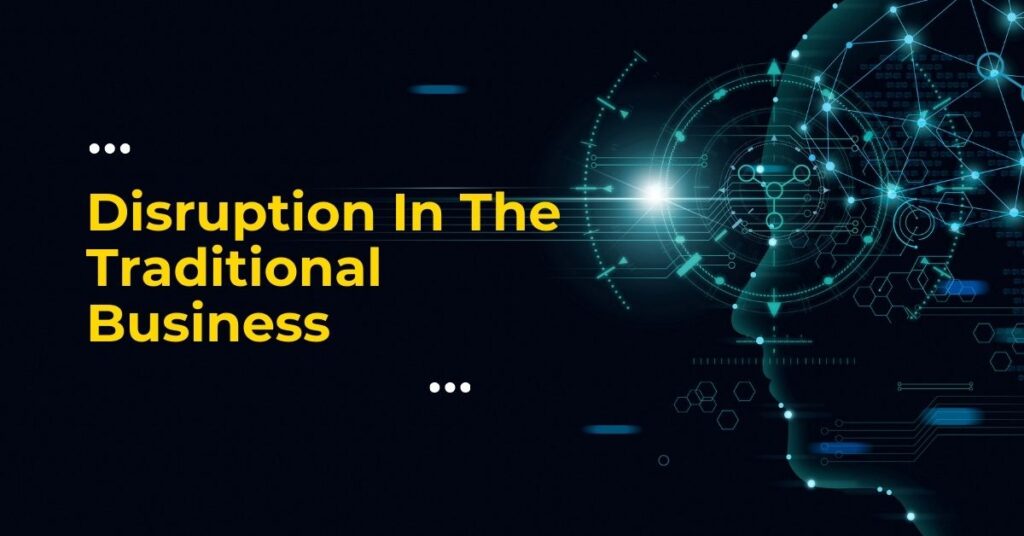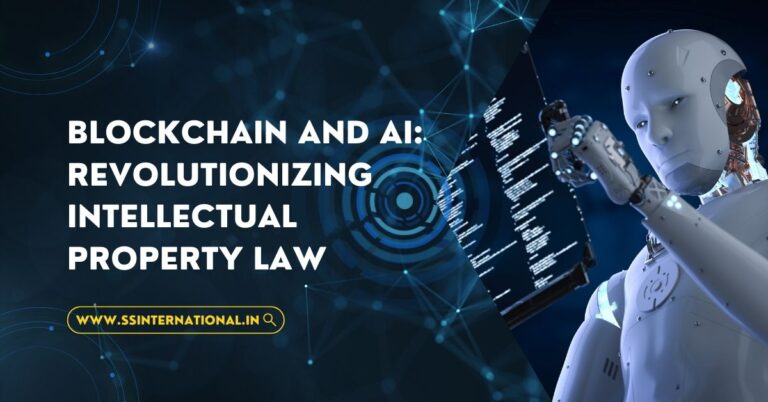Artificial Intelligence (AI) has rapidly transitioned from being a futuristic concept to a driving force in today’s economy. Startups leveraging AI are rewriting the rules of traditional industries, offering solutions that are faster, smarter, and more cost-effective. These nimble disruptors are not just filling gaps but fundamentally changing how industries operate, leaving legacy businesses racing to adapt.
Consider this: AI is projected to add $15.7 trillion to the global economy by 2030, with startups playing a central role in driving this growth. Industries such as healthcare, finance, and manufacturing are already witnessing transformative changes as AI-powered startups take on established players.
In this blog, we will explore how these startups are leveraging AI to innovate, the industries being disrupted, and what this means for the future of traditional businesses.
The Rise of AI-Driven Startups
The rapid emergence of AI-driven startups can be attributed to several converging factors that have lowered the barriers to entry and accelerated innovation:
- Lower Cost of Technology: With the widespread availability of cloud computing and open-source AI tools, startups can now develop powerful solutions without massive upfront investment.
- Availability of Big Data: Data is the backbone of AI, and with digital transformation in full swing, there is an abundance of data that startups can analyze to derive actionable insights.
- Increased Investor Interest: AI-based startups are attracting significant venture capital as investors see the immense potential for growth and disruption in traditional markets.
For instance, companies like OpenAI, the creators of ChatGPT, started small but quickly became global leaders in AI solutions, disrupting industries from education to software development. Similarly, startups like DeepMind (now part of Google) demonstrated AI’s potential early on by revolutionizing gaming and healthcare analytics.
In short, AI-driven startups are uniquely positioned to innovate faster than traditional companies, leveraging modern technologies and agile business models to tackle industry pain points.
Key Industries Being Disrupted by AI Startups
AI-driven startups are redefining the norms across industries that have traditionally relied on manual processes, legacy systems, and conventional business models. Below is an in-depth look at how key sectors are being transformed, along with real-world examples of startups leading the disruption.
a. Healthcare
The healthcare industry is witnessing a massive shift as AI-powered startups tackle challenges like early disease detection, personalized treatment plans, and operational inefficiencies.
- AI for Diagnostics: Startups like PathAI use machine learning to analyze pathology slides, enhancing the accuracy of cancer diagnoses. Their tools assist pathologists in identifying diseases faster and with fewer errors.
- Predictive Analytics: Companies like Tempus leverage AI to process large volumes of clinical and genomic data to provide personalized treatment recommendations for cancer patients. By analyzing patterns, they help doctors choose the most effective therapies.
- Operational Efficiency: AI-driven startups like Zebra Medical Vision provide automated tools for interpreting medical imaging, allowing hospitals to streamline operations and save costs.
- Impact: Traditional healthcare systems, which often rely on manual diagnostics and treatment protocols, are being forced to adapt. AI startups are reducing diagnosis times, improving accuracy, and saving lives while cutting costs significantly.
b. Financial Services
AI is revolutionizing the financial sector with automation, advanced analytics, and enhanced risk management tools, driven primarily by startups that focus on customer-centric solutions.
- Robo-Advisors: Startups like Betterment and Wealthfront use AI algorithms to provide automated investment strategies tailored to individual goals and risk tolerance. These platforms make financial planning accessible and affordable for everyone.
- Fraud Detection: AI-powered platforms such as Darktrace detect anomalies in transactions and flag suspicious activity, preventing fraud in real-time.
- Credit Scoring and Lending: Companies like Upstart use AI to assess loan applicants beyond traditional credit scores. By analyzing alternative data points such as education, employment, and spending behavior, they expand credit access to underserved populations.
- Impact: Traditional banks and financial institutions, which often rely on outdated systems and manual decision-making, face competition from AI-driven fintech startups that offer faster, more efficient, and personalized services.
c. Retail
AI startups are reshaping the retail experience by optimizing inventory management, enhancing customer engagement, and personalizing shopping journeys.
- Hyper-Personalized Recommendations: Startups like Stitch Fix use AI to curate personalized fashion selections based on user data, preferences, and past behavior. Their recommendation engines provide a tailored shopping experience.
- AI Chatbots: Companies such as Kore.ai and Tidio provide AI-powered customer service chatbots that assist shoppers with inquiries 24/7, reducing reliance on human support staff.
- Inventory and Demand Forecasting: Startups like Blue Yonder use AI to predict customer demand and optimize inventory, helping retailers minimize stockouts and reduce overhead costs.
- Impact: Traditional retailers, accustomed to linear supply chains and generalized customer approaches, are being outperformed by AI startups delivering precision and efficiency through data-driven insights.
d. Manufacturing
AI startups are optimizing manufacturing processes through predictive analytics, quality control, and smart automation, paving the way for Industry 4.0.
- Predictive Maintenance: Companies like Augury use AI to monitor machinery performance and predict equipment failures before they occur. This reduces unplanned downtime and maintenance costs for manufacturers.
- Smart Automation: Startups like Tulip provide user-friendly AI platforms to automate production lines, improve quality checks, and optimize workflows.
- AI Quality Control: AI tools such as Landing AI use computer vision to identify defects in products during manufacturing, ensuring quality standards are consistently met.
- Impact: Traditional manufacturing, which has relied heavily on human oversight and legacy machinery, is being modernized by AI startups. These innovations enhance productivity, reduce waste, and improve product quality.
e. Transportation & Logistics
AI is transforming how goods and people are moved, driven by startups focusing on automation, route optimization, and efficiency.
- Autonomous Vehicles: Companies like Nuro and Aurora are at the forefront of self-driving technology, enabling autonomous deliveries and transportation solutions. Nuro’s autonomous delivery vehicles have disrupted last-mile delivery systems in retail and logistics.
- Route Optimization: Startups such as OptimoRoute use AI to calculate the most efficient delivery routes, reducing fuel consumption and improving delivery times.
- AI in Supply Chain Management: Platforms like Shippeo leverage real-time AI-powered tracking to optimize supply chain workflows and ensure on-time deliveries.
- Impact: Traditional logistics providers and transportation companies are being pushed to adopt AI-based systems to compete with startups that promise faster deliveries, reduced operational costs, and improved customer experiences.
Summary of Disruption Across Industries
AI-driven startups are addressing critical gaps that traditional industries have been slow to fill. By leveraging advanced data analytics, machine learning, and automation, these startups provide solutions that are faster, more scalable, and customer-centric. Whether it’s improving diagnosis in healthcare, automating investments in finance, or revolutionizing last-mile delivery in logistics, AI is fundamentally changing how industries operate.
How Startups are Outpacing Traditional Businesses
AI-driven startups possess a unique combination of agility, innovation, and data-centric strategies, allowing them to outperform traditional businesses. Here’s a closer look at how they are achieving this edge:
a. Agility and Speed
Startups operate with lean structures and minimal bureaucracy, allowing them to:
- Adapt Quickly: AI startups can pivot strategies or adopt new AI models faster than traditional businesses tied to legacy systems.
- Iterate Rapidly: Leveraging Agile development methodologies, AI startups release MVPs (Minimum Viable Products) quickly, gather feedback, and improve.
- Example: In the finance sector, startups like Upstart implemented machine learning credit assessments far faster than traditional banks, enabling quicker loan approvals.
b. Cost Efficiency and Scalability
AI significantly reduces operational costs by automating processes and improving efficiency. Startups benefit by:
- Automating Repetitive Tasks: Startups use AI to handle manual processes like customer service, data entry, and inventory management.
- Scalability: AI platforms allow startups to scale operations without proportionally increasing expenses.
- Example: Retail AI startup Zebra Technologies has enabled companies to automate inventory management, outperforming traditional methods that required heavy manpower and time.
c. Customer-Centric Solutions
AI enables startups to offer personalized and data-driven experiences to customers, a key differentiator over legacy businesses.
- Hyper-Personalization: Startups analyze user data to customize offerings, enhancing customer satisfaction.
- Improved Response Time: AI tools like chatbots and virtual assistants reduce response delays.
- Example: Stitch Fix has outpaced traditional retail brands by offering tailored fashion solutions using AI to predict customer preferences.
d. Data-Driven Insights
Startups are born in the digital era, leveraging AI tools to analyze large volumes of data for actionable insights. In contrast, traditional businesses often struggle with siloed data and outdated systems.
- Real-Time Decisions: AI empowers startups to make quicker, data-backed decisions.
- Predictive Analytics: Startups can forecast market trends, demand, and risks with AI models.
- Example: In healthcare, AI startups like Tempus leverage genomic data for precision medicine, an area where traditional healthcare providers lag due to limited technological adoption.
Challenges AI Startups Face
While AI startups are disrupting industries, they face significant challenges that could hinder their growth and success. These challenges include data privacy concerns, regulatory hurdles, and competition from established players.
a. Access to Quality Data
AI models rely on large, clean, and relevant datasets. However:
- Startups often lack access to proprietary data, unlike traditional giants that have amassed decades of customer data.
- Poor-quality or biased datasets can affect the accuracy and performance of AI solutions.
Example: In healthcare, startups face challenges accessing anonymized patient records due to strict data protection laws like HIPAA in the United States.
b. Regulatory and Ethical Challenges
Governments worldwide are introducing regulations around AI usage to address concerns like:
- Data Privacy: Compliance with regulations like GDPR (Europe) or CCPA (California) requires startups to manage data carefully.
- Bias and Transparency: Ensuring AI algorithms are ethical, unbiased, and explainable remains an ongoing challenge.
Example: Facial recognition startups have faced bans or restrictions due to privacy concerns, limiting their market opportunities.
c. Competition with Industry Giants
Startups face intense competition from traditional businesses that are:
- Investing Heavily in AI: Established players like Amazon, Microsoft, and Google have the resources to develop and deploy AI at scale.
- Acquiring AI Startups: Larger companies acquire disruptive startups, consolidating their competitive edge.
Example: In the logistics sector, while startups like OptimoRoute innovate with route optimization, giants like Amazon invest billions in AI-driven supply chain systems, making it harder for startups to sustain their market share.
d. Talent Shortages
There is a global shortage of AI and machine learning talent, which:
- Drives up hiring costs, limiting startups with smaller budgets.
- Increases competition for skilled professionals, making retention difficult.
Example: Startups competing with tech giants like Google and Apple struggle to attract and retain top-tier AI engineers due to resource constraints.
e. Ethical Dilemmas
AI raises concerns about job displacement, privacy, and ethical usage, leading to public skepticism and resistance. Startups must balance innovation with social responsibility.
Example: AI-powered automation tools in manufacturing have sparked debates about job losses, slowing adoption in regions with strong labor protections.
The Future of AI Startups in Traditional Industries
The future holds tremendous potential for AI-driven startups as they continue to transform traditional industries. Emerging trends and opportunities indicate that AI will not only accelerate industry innovation but also reshape the dynamics of competition, collaboration, and growth.
a. Deeper Collaboration Between Startups and Established Businesses
Strategic Partnerships: Traditional businesses are increasingly collaborating with AI startups to modernize their operations and integrate AI-driven solutions. Startups provide agility and innovation, while traditional businesses offer industry expertise and market access.
Example: Automotive giants like BMW and Volkswagen have partnered with AI startups like Nauto to integrate autonomous driving technologies into their vehicles.
Corporate Accelerators: Large companies are launching accelerators to foster AI startup growth, creating win-win opportunities.
b. Growth of Niche AI Solutions
AI startups are likely to focus on hyper-specialized solutions that target specific pain points within industries. These solutions will:
- Solve Complex Problems: Startups will create tools for niche sectors like precision agriculture, AI-powered education platforms, or renewable energy optimization.
- Example: Startups like Blue River Technology use AI-driven tools for “smart farming,” helping farmers identify weeds and reduce herbicide use.
- Cater to SMEs: Small and mid-sized businesses will adopt affordable AI tools provided by startups to stay competitive and scale operations efficiently.
c. Increased Adoption of Generative AI
Generative AI tools are driving the next wave of innovation across industries:
- Content Creation: Startups are using tools like generative AI for marketing content, design automation, and personalized user experiences.
- Example: Startups like Copy.ai help businesses create AI-powered marketing content, reducing creative overhead and time.
- Product Development: AI is accelerating product development, enabling startups to design prototypes and test solutions faster than ever.
d. AI Regulation and Ethical AI
The future of AI startups will depend heavily on their ability to navigate regulatory landscapes and build trust through ethical AI.
Transparent AI Models: Startups that prioritize explainable AI and eliminate biases will emerge as leaders.
Regulatory Compliance: Startups will need to comply with emerging AI governance frameworks globally to ensure sustainable growth.
e. Funding and Investment Growth
Increased Venture Capital (VC) Interest: Investors are pouring resources into AI-driven solutions that promise exponential returns and industry transformation.
Stat: In 2023 alone, global AI startup funding crossed $50 billion, with sectors like healthcare and fintech receiving the largest shares.
Government Backing: Governments worldwide are supporting AI startups through funding, incentives, and innovation hubs.
f. Integration of AI with Emerging Technologies
The convergence of AI with technologies like IoT, blockchain, and quantum computing will further revolutionize industries:
- Smart Manufacturing: AI and IoT will power fully automated “smart factories.”
- Blockchain and AI: Startups will build secure, transparent systems using AI for fraud detection and blockchain for verification.
Example: AI-blockchain integrations are being used in logistics to ensure real-time visibility and traceability in supply chains.
Conclusion
The rise of AI-driven startups is one of the most significant forces reshaping traditional industries. From healthcare and finance to retail and manufacturing, these startups are demonstrating that innovation, agility, and data-driven insights can overcome the limitations of legacy systems.
Key takeaways:
- Startups Lead Disruption: AI startups are offering smarter, faster, and cost-effective solutions to age-old problems.
- Traditional Industries Must Adapt: Established businesses face a critical choice: embrace AI or risk becoming obsolete.
- The Future is Collaborative: Partnerships between startups and traditional companies will unlock unparalleled opportunities for growth.
As AI technologies advance, startups will continue to challenge the status quo, ushering in a future where industries are more efficient, innovative, and customer-centric. For businesses and investors, this disruption represents not just a challenge but an opportunity to lead in a rapidly changing world.




